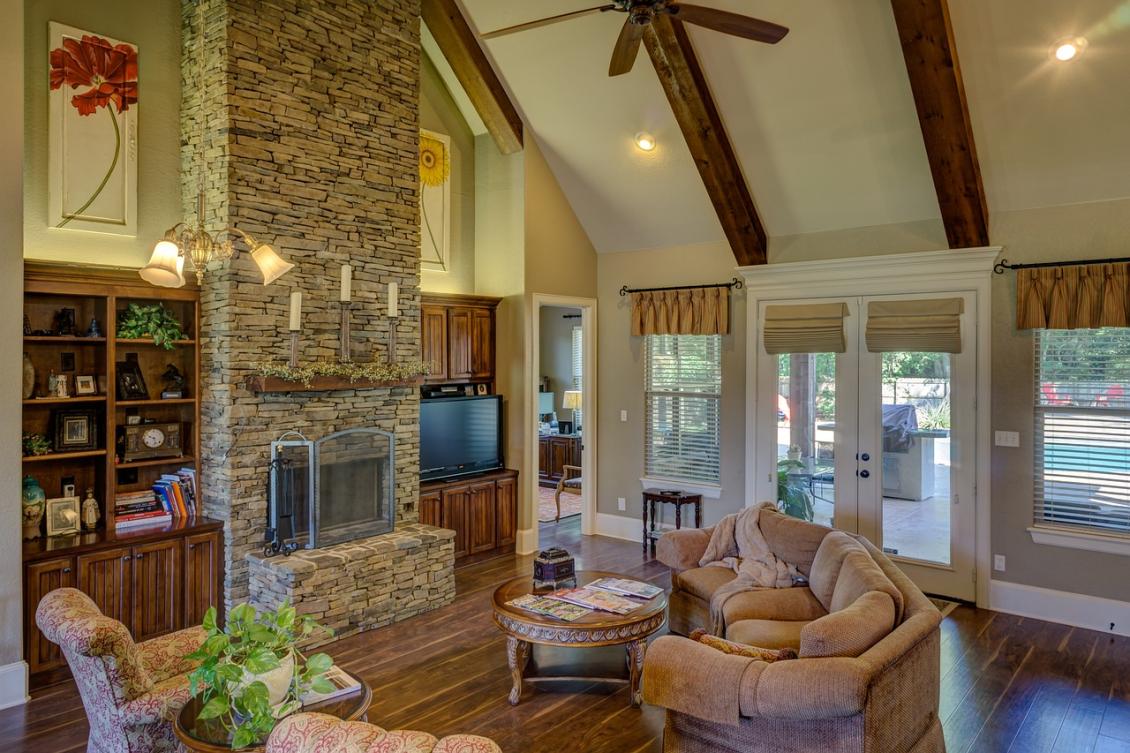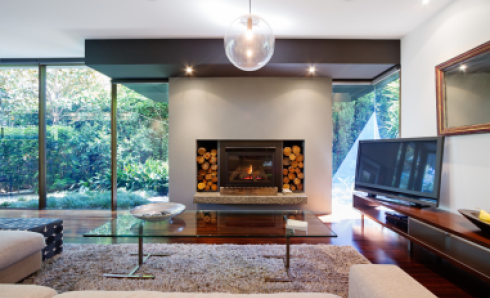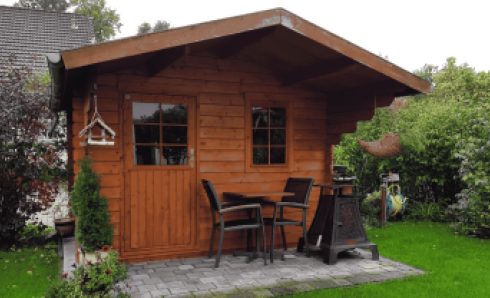In our modern Western world, homes have become our sanctuaries. They are where we retire at the end of a hard, stressful day, where we create beauty, warmth, and a welcoming atmosphere. Our homes are where we start and finish the day. They are our life.
There is a saying: don’t put all your eggs in one basket. However, when you invest in a home, you don’t have much choice. It’s the place you need to keep all of your eggs. So, with that in mind, doesn’t it make sense to be sure that everything is well protected?
Why Home Insurance is Essential
Financial Protection
We like to think it will never happen to us, but it happens to at least somebody every single day. Home insurance can shield homeowners from significant financial losses due to events like fire, theft, or natural disasters.
A major fire can devastate a home, leaving you with a bill of tens of thousands of euros, at the very least. Even restoration after a small fire can set you back thousands. Natural disasters, such as flooding and wind damage, are becoming more common, and there are an estimated 70,000 homes around Ireland with severe flooding risk, while the average domestic flood damage is €27,000.
Often, after a theft, the possessions that can’t ever be replaced cause the most pain, but the financial hit of having your house cleared out shouldn’t be underestimated.
Peace of Mind
Home insurance provides a safety net, reducing stress related to unforeseen damages or losses. This can give you peace of mind that lets you put those worries aside and get on with living. Who wants to worry about buts and what-ifs?
Legal Requirements in Ireland
No law legally obliges you to take out home insurance, but having it is typically a requirement from mortgage lenders. This makes sense to a degree as they want to protect their investment, and you’ll most likely need proof of insurance before signing on the dotted line.
Understanding Home Insurance Terms and Conditions
We can’t stress reading the terms and conditions for home or any other insurance carefully enough. Providers should be upfront about what is and isn’t covered, but the length of these legal documents often makes it difficult. Take your time and read through carefully. If you don’t understand anything, ask.
There are a few terms commonly found in home insurance policies:
- Excess - An insurance excess is an agreed-upon sum that you, the policyholder, agree to pay the insurance if you make a claim. You can usually choose to have an excess of €250, €500 or €1000 with 123.ie.
- Premium - Your premium is what you have to pay in a year, this can be broken down to pay each month. The more comprehensive the cover, the higher the premium, and if you fail to pay it, your cover will be negated.
- Deductible - Very similar to excess in many ways. The individual will need to pay deductibles before the insurance companies step up. Again, the lower your deductibles, the higher your premiums are likely to be.
What Does Home Insurance Cover in Ireland?
Home insurance policies in Ireland come in all shapes and forms, so it’s essential to read the terms and conditions to understand what’s covered. Most insurance policies, however, will cover at least fire, theft, and damage caused by natural disasters.
Factors Influencing the Scope of Coverage
Factors such as the home’s location, construction type, security measures, and more can influence the scope and cost of coverage. Unfortunately, if you live in an area prone to flooding, you might struggle to find low-cost coverage, and some insurers might refuse outright to cover a property because of high perceived risks.
Building Coverage
Building coverage broadly covers anything structural, such as the home, outbuildings, garage, etc. It may also cover permanent fixtures such as bathroom or kitchen fittings. This type of coverage probably won’t cover theft - it’s hard to steal a home - and also won’t cover possessions inside.
Contents Coverage
Contents coverage includes everything within your property, such as furniture, electronics, personal belongings, etc. This may not cover permanent fixtures, such as taps, and you’ll want to be careful regarding the situation with the garden. Many assume that an item stolen from the garden will automatically be covered, but that’s not always true.
Liability Coverage
Liability coverage protects homeowners if someone is injured on their property and makes a legal claim against them. This kind of coverage on its own provides absolutely no protection for buildings or their contents.
Additional Living Expenses Coverage
When a flood sweeps through, it can sometimes be weeks or months until a property is livable again. These types of costs are often overlooked but really begin to stack up. Additional living coverage pays for expenses if the home becomes uninhabitable due to a covered peril, i.e., flood or fire damage.
This coverage varies from provider to provider but may cover some, if not all, of the following:
- Hotel bills
- Restaurant meals
- Replacement clothing
- Laundry service
- Pet Boarding
- Storage
- Furniture rental
Before you start rubbing your fingers together with glee at the thought of staying in a 5* hotel and eating in a Michelin-starred restaurant, this coverage will almost certainly come with stringent conditions and limitations.
Optional Coverages
Home insurers usually give you the option of add-ons, such as coverage for high-value items, accidental damage, and home emergencies. These must be considered carefully to decide whether they’re right for you. If you have several high-value items that might not be covered under standard contents insurance, this might be a good option to go with.
Accidental damage usually covers those day-to-day mishaps and breakages: a smashed window, a stained carpet, or a smashed TV after a football mishap in the living room.
Home emergency coverage covers sudden effects on your gas, electricity and water while also covering blocked drains, boiler breakdowns, burst pipes or electrical failures.
How to Protect Your Home Investment with Insurance
It doesn’t matter how safe we think we are and how tranquil the environment is, anything can happen, which makes having home insurance a true peace of mind.
Adequate Coverage
Ensuring that a policy provides adequate coverage for the home’s structure and contents is crucial. Underinsurance is a term used to describe a property that isn’t insured to its correct value - where the insurance taken out and the coverage it provides is less than the cost of rebuilding or repairing a home. This is a problem we’re seeing much more these days. In 2017, only 6.5% of claims were found to be underinsured, but by 2021, that figure had risen to 16.5%.
Being ‘underinsured’ means that your property won’t be fully covered in the event of a major incident or serious theft. It’s important that you find exactly the right type of coverage, even if it costs slightly more than the essentially useless bargain-basement version.
Regular Policy Reviews
Life is constantly changing, and it’s essential to review the policy regularly to ensure it keeps up with any changes, such as renovations or major purchases. If you’ve made some high-value buys, make sure they fall within the contents coverage on your policy, and if you build or renovate anything on your property, ensure these changes are included.
Understanding Home Valuation
It’s vital to accurately evaluate the home and its contents before taking out a policy. This will diminish the chance of being underinsured and perhaps even save you some money by stopping you from going for top-tier insurance when something in the middle will do just fine.
Conclusion
Home is where the heart is, so why risk it all to chance? Nobody likes taking out home insurance, but the peace of mind that comes with it is unparalleled.
At 123.ie, we’ll work with you to find a home insurance policy that is both reasonably priced to suit your situation and which covers you in the off chance the very worst happens. Get in touch with us today for personalised quotes or further information. Get some insurance, and then completely forget about it - as you should do.





